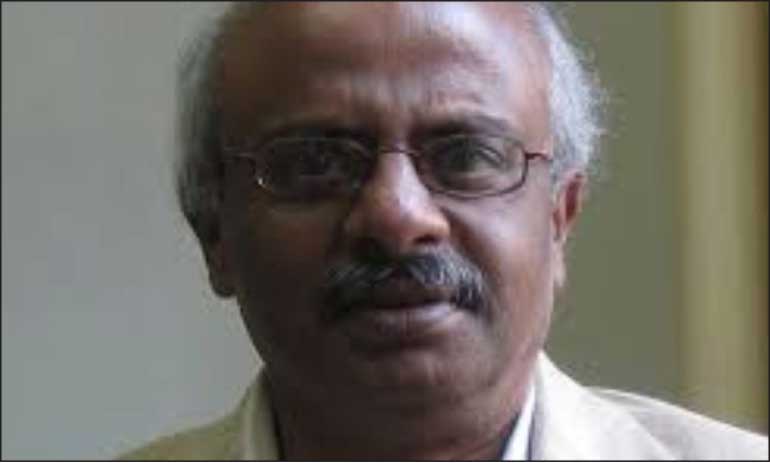Friday Feb 20, 2026
Friday Feb 20, 2026
Saturday, 5 June 2021 00:00 - - {{hitsCtrl.values.hits}}

Even now, when he is no more, his fiercely protective caring for the human rights of all ethnicities, combined with equally caustic insights about what needs to change, will be, for me, a guiding light
By Yasmin Azad
I got to know Qadri, long, long after I should have. We both had our roots in Galle, and were second or third cousins (depending on how you calculated cousinship). As a little girl, I swiped fried cashews off the tables at his parents’ wedding; I heard about his fabulous first birthday party and knew him to be an adored first grandchild; and to top it all, we both read English at Peradeniya. But just when this remarkable young man might have been willing to have an extended conversation with a relative 10 years older, I left the country.
From afar, I heard about his achievements: he had landed a much-coveted First Class in English, won a Fulbright scholarship, secured a PhD from an Ivy League University in the United States, and eventually became a full professor. Achievements I could only dream of. But, as far as I was concerned — he was an impressive but personally unknown high achiever, to be acclaimed from a distance.
Then suddenly and unexpectedly, early last year, he wrote to me about my newly-published book. He got his university library to include the book in their collection and gave several copies to his academic colleagues. I am bringing attention to this, not because it’s ‘my’ book, but as evidence of a remarkable generosity which I fear can get shadowed by his confrontational writing style. Every word of his insightful response, I cherished as if they were written in gold. His criticism of its shortcomings, though expressed with his usual wit, were fair and kind. I remember thinking (and I am not exaggerating here), ‘just getting this response from Qadir makes all the effort of writing and publishing worthwhile’.
We began an exchange of emails which soon went beyond social-political topics. Full of humour and repartee, and also support for each other’s writing, they drew on a more personal bond that was being rapidly forged. Typical of this exchange was his inviting me to have a traditional Muslim meal at his condo, after the pandemic was over, my teasingly casting doubt about his culinary powers, and his retorting that he would have me know that he had been trained by one of the best cooks from Galle i.e., his mother.
Now as I look back on the devastating loss of his life cut short, I begin to understand why we connected so quickly.
Qadri was, to put it mildly, a nonconformist. He threw down the gauntlet, it appears, even before full adulthood, when he gave up that most prestigious of university entrance achievements — admission to Medical College—and turned to literature. Even there, he did not, ahem, genuflect. As someone who knew him well wrote, he “eviscerated the English Department that had just given him a First Class.” He wrote hard-hitting articles, especially necessary in a world where the scourge of religious nationalism is spreading. And he seemed not to care about the fallout for himself, either in physical danger or social ostracisation.
This is hardly the norm in the very traditional, tightly connected Muslim community in which we were both raised. In such places, it is rare to find the passionate intensity with which he expressed himself, the courage with which he fought for his convictions, and his willingness to confront headlong, any number of sacred cows. Qadri, like me, loved the people he had grown up with and he defended them with fervour when it was necessary; and yet, he also took flight, both physically and metaphorically, to places beyond the conforms of that same community. That was what resonated for me; why, I believe we bonded so quickly. “How you write cannot perhaps be separated from who you are as a writer and, more important as a person. And for that last, I have deep respect,” I said to him.
Even now, when he is no more, his fiercely protective caring for the human rights of all ethnicities, combined with equally caustic insights about what needs to change, will be, for me, a guiding light.
(Yasmin Azad is the author of ‘Stay, Daughter – A memoir of Muslim girlhood’.)